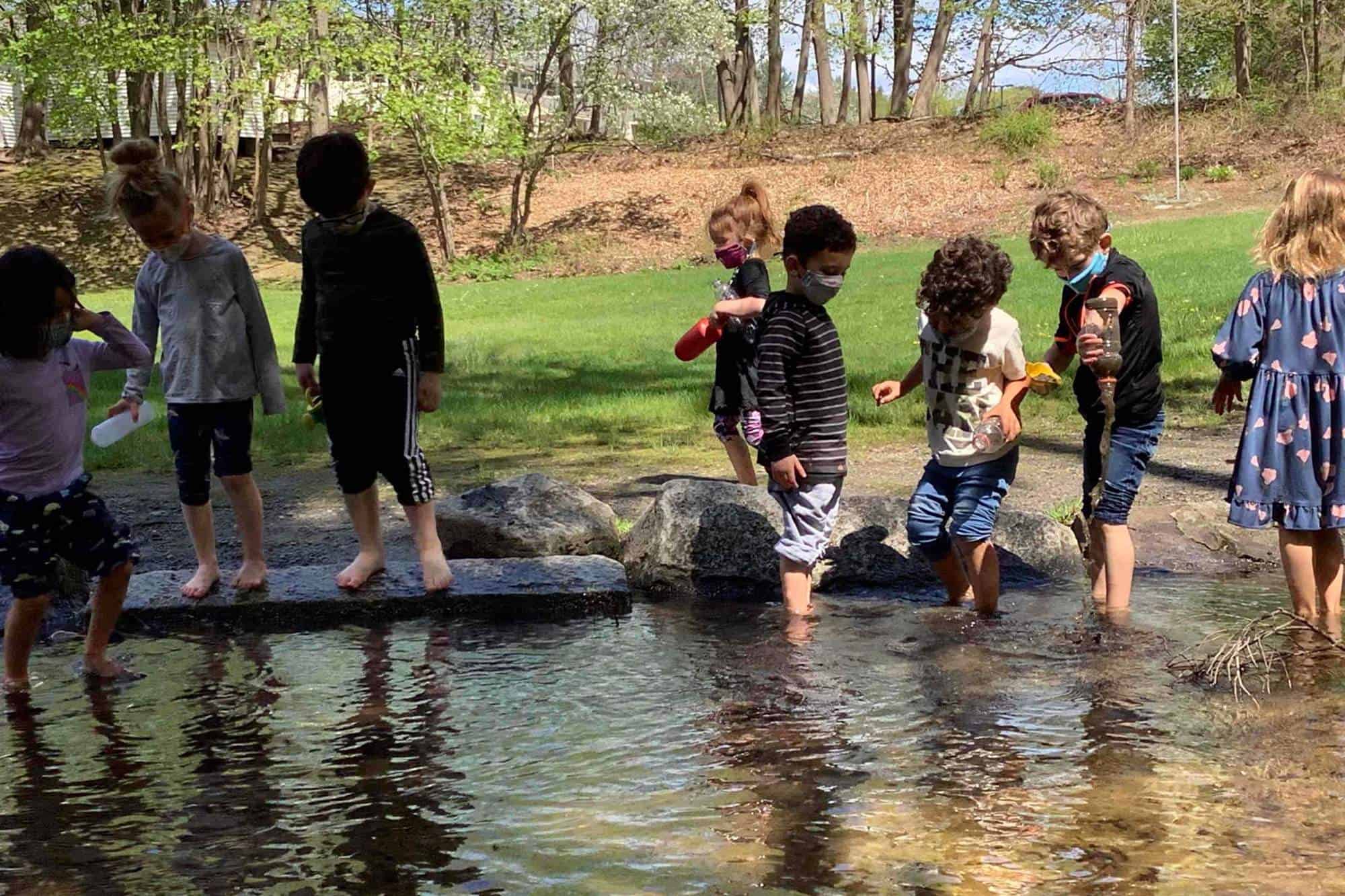
At the Early Learning Center at Temple Shir Tikva, our teachers love and respect each child as an individual, with thoughts, opinions, and ideas, and they consistently nurture each child to be their most authentic selves.
We develop our curriculum based upon direct observation of the children as they work and play. Teachers notice what materials the children use, the conversations they have, and what sparks their joy and curiosity.
Our teachers embrace every opportunity to use our indoor and outdoor environment (also called “the 3rd teacher” in the Reggio Emilia philosophy, where the parent is the 2nd teacher), to allow the children to find joy and wonder in the world around them. The beautiful outdoor spaces at TST and the adjacent campgrounds are a wonderful extension of our classrooms. Our innovative teachers “take the inside, outside” by setting up provocations and invitations to play in these outdoor classrooms.
When our children make discoveries in nature and ask questions about their findings they are practicing critical thinking skills and making connections. The cycle of asking questions, making predictions, and testing those theories often leads to a new set of questions, and from there, a rich curriculum is born. It is often in the mundane that our children find magic and wonder; things that seem so commonplace to adults open a world of discovery for our young learners.
Here at the ELC, Jewish values, customs and traditions are woven into the curriculum and classroom invitations each day. In addition to stories and books about the Jewish holidays, our children also have the opportunity to “play Shabbat” in the dramatic play area and join our wonderful clergy, Rabbi Danny. Rabbi Jordi, and Cantor Hollis for Shabbat songs and blessings. Jewish values and middot (character traits) like chesed (loving-kindness), hakarat havot (finding the good or gratitude), and kehilah (community) are a part of everyday life at the ELC. We see Jewish themes and values represented through classroom curriculum in organic ways, such as learning about bees during Rosh Hashanah, or through an emerging construction/building curriculum as we approach Sukkot.